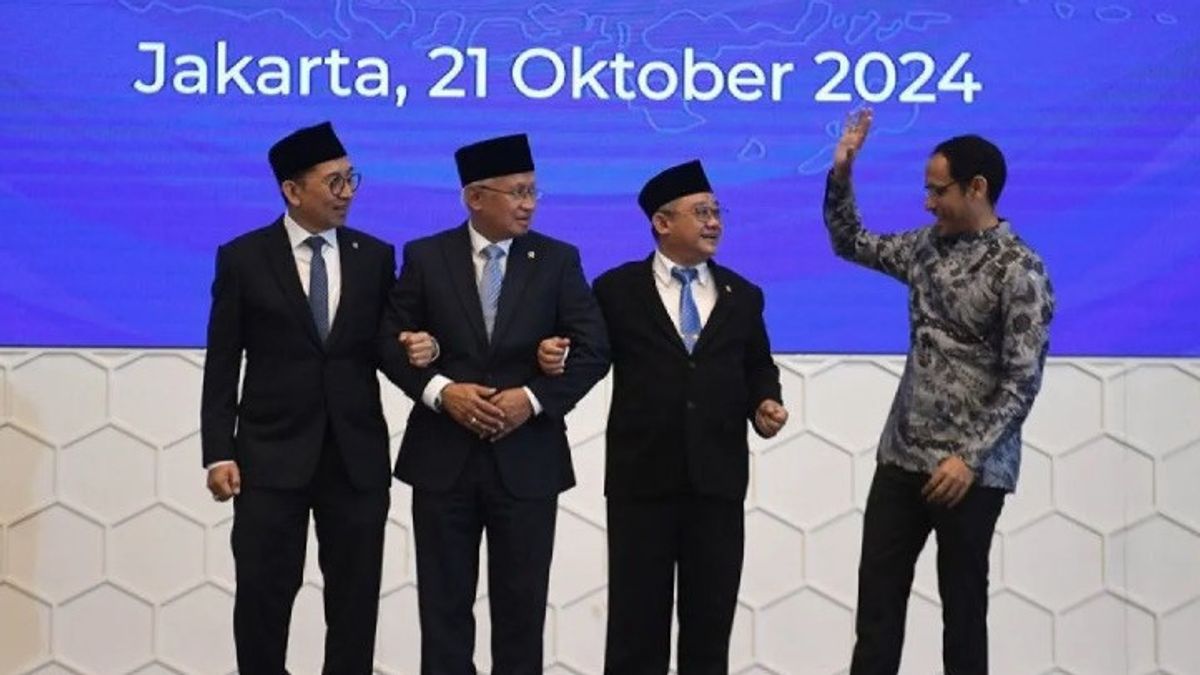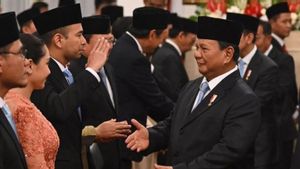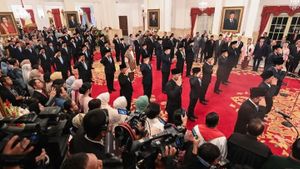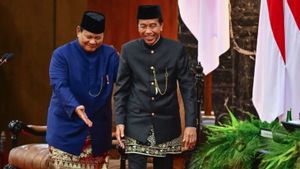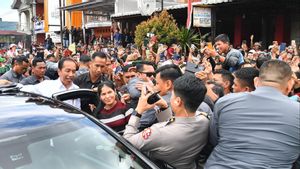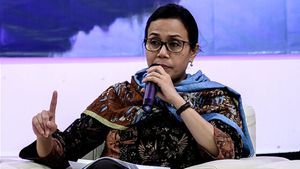JAKARTA Education is a sector that is of concern to Prabowo Subianto-Gibran Rakabuming Raka as president and vice president for the period 2024-2029. The separation of the Ministry of Education, Culture, Research and Technology (Kemendikbud Ristek) into three nomenclatures is expected to focus on managing problems in the field to be more focused.
Education is one of the key factors in the progress of a nation. Through education, the availability of adequate and superior human resources is a necessity.
In his vision, Prabowo-Gibran wanted to build Indonesia with the foundation of the previous era of government. This vision was revealed in eight missions called Asta Cita. One of its contents mentions the development of human resources (HR).
To realize this mission, the government will develop the education sector by strengthening science, technology, gender equality, and mastering the role of women, youth, and people with disabilities.
There will be three main ministers who will oversee this sector, namely the Minister of Basic and Secondary Education, the Minister of Higher Education, Science, and Technology, and the Minister of Culture. This is also still added by the Minister of Religion who takes care of education in madrasas and Islamic boarding schools.
Nadiem Makarim handed over his leadership to three new ministers because in the Red and White Cabinet (KMP), the Ministry of Education and Culture, Research and Technology was broken into three new ministries. The three ministers who underwent the handover of positions with Nadiem Makarim were the Minister of Basic and Secondary Education Abdul Mu'ti; Minister of Higher Education, Science and Technology Satryo Soemantri Brodjonegoro; and Minister of Culture Fadli Zon.
The discourse on this breakup was actually heard before the announcement of KMP Prabowo Subianto. Nadiem Makarim himself, who had inserted the ministry he led for the 2019-2024 period, will again be divided into three.
"It must be the success of the next minister. Now I transition the three ministers. So it's different, so it depends on (Ministry) Culture, Dikti (High Education), and Diknas (National Education)," said Nadiem before the announcement of KMP.
With the breaking of the Ministry of Education and Culture, Research and Technology, there is hope that educational issues that are so complex can be resolved. The emergence of three new ministers of the Ministry of Education and Culture Ristek received a positive response from members of the Indonesian House of Representatives for the period 2024-2029 PKS faction Abdul Fikri Faqih.
"Indeed, there have been a long time of criticism of the orientation of higher education development that is not focused, when it is mandated by ministries which have also been burdened with basic and secondary education," said Fikri.
With the existence of the Ministry of Culture being divided separately, he considered that this needed support from many parties. According to him, Indonesia needs to learn from several countries of India, France, and other countries that already have experience in preserving, managing, and developing their culture in a ministry in particular.
Ubaid Matraji, researcher and education observer, also highlighted this. According to him, the harassment of the Ministry of Education and Culture as the Ministry of Basic and Secondary Education, the Ministry of Higher Education, Science, and Technology, and the Ministry of Culture will not immediately solve the problems of Indonesian education.
He predicts that there will be inconsistencies between one ministry and another ministry. In fact, to solve educational problems, it requires synergy between the ministries of primary, secondary and higher education.
He gave an example of the teacher's problem, ranging from salary to quality, which has been echoed for a long time, but there has never been a solution even though previously only one ministry was taken care of.
"Reflecting on those that have happened before, it is difficult for one ministry to synergize. For example, the problem is the teacher's problem, the problem is not only upstream but also downstream. In addition, it is also a school problem," said Ubaid when contacted by VOI.
"Yesterday, one ministry just couldn't connect, let alone separate. I think it will make it more difficult for each other's synergy," he added.
However, Ubaid invites the public to wait until the first 100 days this new ministry will work to see if there will be synergy steps to solve educational problems.
"Indeed, it shouldn't be broken down, what are the considerations divided? But we'll see, can this have a positive impact or not?" said Ubaid.
On the other hand, education observer from Paramadina University Totok Amin positively welcomed the breaking of the Minister of Education and Culture, Research and Technology into three nomenclatures. With the presence of three education ministries, Totok assessed that the focus of managing problems in the field would be more focused. However, he did not deny that there would be a negative impact from this breakdown.
"In the past, there were problems, for example, higher education, which was managed by one director-general, now the director-general has moved up to the ministerial level, so the number of echelons 1 is more and more specific to each field of dikti and research and technology," he explained.
Totok explained the consequences that must be paid for the increase in the number of echelons 1. In addition to increasing the budget, it is possible to extend the bureaucratic chain due to cross-ministerial and other ministries cooperation.
So far, said Totok, horizontal coordination between ministries and central institutions is still a weakness for the Indonesian government. Not to mention coupled with vertical coordination with local governments, whether it's provinces or cities or districts.
"Therefore, the control of the coordinating ministry is important. It must be strong and with clear directions," Totok added.
SEE ALSO:
Other concerns were expressed by Edi Subkhan, an education observer from the Semarang State University (UNS). He also highlighted communication and coordination between ministries, especially the Ministry of Elementary and Secondary Education with the Ministry of Higher Education.
According to Edi, these two ministries have the potential to experience communication barriers if the basic and secondary education policies are not sustainable with higher education.
Apart from communication, administrative problems can also be obstacles. The more nomenclature, the more complicated the administrative process is. This seems to have become a common sight in Indonesia.
"If the nomenclature is separated based on previous experience, it will be troublesome. For example, for the needs of field practice students in schools, research, and others. Perhaps it is considered trivial about administration, but in Indonesia this is a big problem, because substantial things are often neglected because of administrative matters," he said.
The English, Chinese, Japanese, Arabic, and French versions are automatically generated by the AI. So there may still be inaccuracies in translating, please always see Indonesian as our main language. (system supported by DigitalSiber.id)
